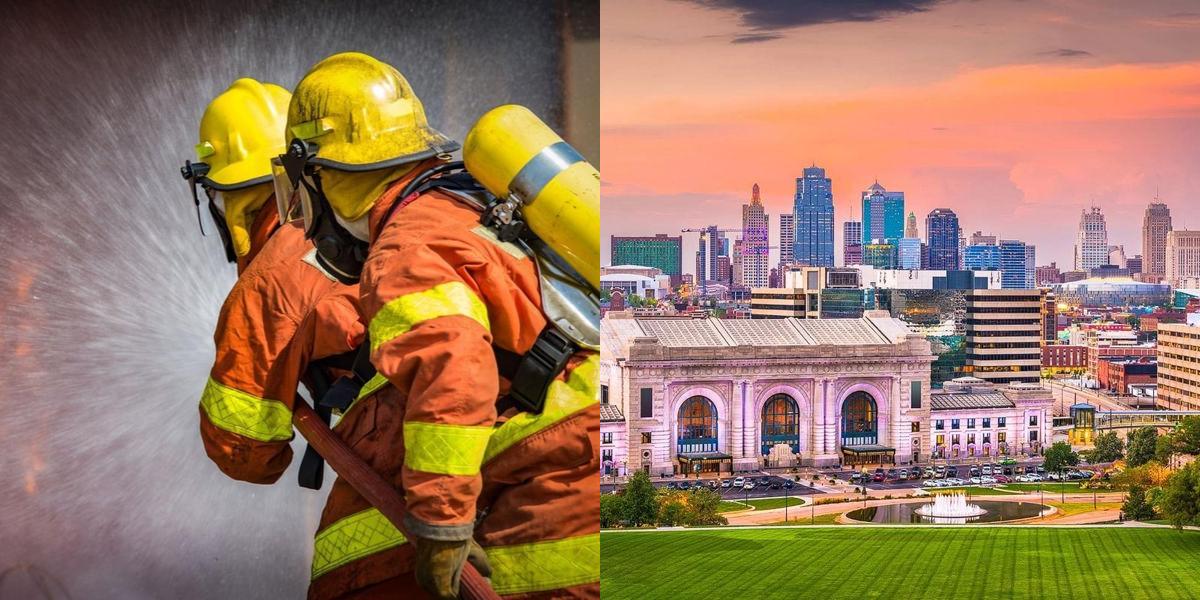How to Become a Firefighter in Missouri (2025)

A firefighter is a trained professional who responds to emergencies such as fires, medical crises, and natural disasters to protect lives, property, and the environment. With a 4% projected growth in firefighter jobs nationwide and a growing need for emergency responders in Missouri, becoming a firefighter offers a fulfilling career path. This guide outlines how to become a firefighter in Missouri, including training requirements, certification steps, and career opportunities.
Key Points
- Firefighters are trained professionals who respond to emergencies like fires, medical crises, and natural disasters to protect lives, property, and the environment.
- In Missouri, becoming a firefighter involves meeting specific age and education requirements, passing a firefighter exam and background check, and completing certified training.
- Firefighter training programs last about 6-12 months, blending classroom learning with hands-on practice.
- The median firefighter salary is $49,380 per year, offering competitive pay alongside the opportunity to make a meaningful difference.
Finding Firefighter Classes in Missouri
If you're interested in becoming a firefighter in Missouri, you can find firefighter training classes through Dreambound, the largest platform for students to find and compare vocational training programs. Dreambound offers a comprehensive directory of firefighting programs in Missouri, allowing you to easily find classes near you.
To explore firefighter training options in Missouri, visit Dreambound and search for firefighter programs in your area. Dreambound provides detailed information about each program, including course curriculum, duration, cost, and reviews from past students.
Career Paths and Opportunities After Becoming a Firefighter
- Fire Officer: Supervise and manage firefighting crews.
- Fire Investigator: Determine the cause of fires.
- Fire Inspector: Enforce fire safety codes.
- Hazardous Materials Specialist: Handle hazardous materials incidents.
- EMT/Paramedic: Provide emergency medical services.
Frequently Asked Questions
How long does it take to be a firefighter in Missouri?
Becoming a firefighter in Missouri typically takes 6-12 months to complete the required training program, which includes classroom instruction and hands-on practice covering fire suppression, emergency medical services, and rescue operations; some departments like St. Louis require an additional 18-week academy after hiring.
How much are firefighters paid in Missouri?
According to current data, firefighters in Missouri earn an average annual salary of $46,590, with entry-level positions starting around $22,950 and experienced firefighters earning up to $76,610, though salaries vary significantly by city and department size.
Do you have to go to college to be a firefighter in Missouri?
No, a college degree is not required to become a firefighter in Missouri—the minimum requirement is a high school diploma or GED, though some departments prefer candidates with additional education like an associate's degree in fire science for competitive advantage.
What is the quickest way to become a firefighter?
The quickest way to become a firefighter is through accelerated fire academies that combine Firefighter I/II and EMT training in intensive full-time programs lasting 4-6 months, though volunteering at local departments while obtaining EMT certification can also provide a fast entry path.
Final Thoughts
Becoming a firefighter in Missouri is a rewarding path with competitive salaries and opportunities for growth. Start your journey today by exploring training programs through Dreambound and take the first step toward a career in firefighting.
Exploring different career paths? Dreambound offers in-depth guides to assist you in making well-informed decisions. Explore some of these resources below:

Harold Roldan is a Growth team member at Dreambound. With a background in IT, he works with data and automation to improve team efficiency and workflows. He spends his free time playing musical instruments or studying data, computers, and technology.




